This March I thought it would be a good birthday present for my Dad to go to a nice concert as a family. Wish comes true, and an ensemble called “Concordian Dawn” was scheduled to perform at a local venue. The program fitted our definition of nice, so I acquired the tickets, and we went. While we were still settling down, checking out the crowd, checking out the program, the sense of complexity took over me. What is this performance? What is it exactly that I am listening to? Am I listening to the years of Concordian Dawn’s practice and scholarship which at this very moment bring forth the artistry of the Guillaume de Machaut, the composer, to us? Am I listening to the years of Guillaume de Machaut contemplations on the writings of Boethius, the philosopher, which lead to the creation of “Remede de Fortune”, the piece being performed? Am I listening to the artists drawing in the breath of blissful inspiration, or them drawing it out, transformed? Am I listening to myself listening? Am I listening to myself making sense of my sense-making? Am I listening to something which, in its recorded form, some future listener (it could be me) will be making sense of in a week, month, or year from now?
The moment-as-experienced wasn’t fitting into the everyday way of thinking. Whoever was that mind who was first to demonstrate the convenience and utility of linearizion and a unit of measure to this complexity we call “time” (looking at you Rene DeCartese) is perhaps the culprit to the uncanniness that has been following me through the years of thinking in such a manner. I want to break free from it.

The artists went “and when she had finished her song she bowed her head toward me, smiling sweetly like the one I believe to be a Virgin Maid, placed her hand on my head and asked me straight out, “How are you? What do you have to say to me? Have I discussed your concerns well? What do you think of my song?”“
THE SEARCH OF THE PRIOR ART
Allen’s Algebra
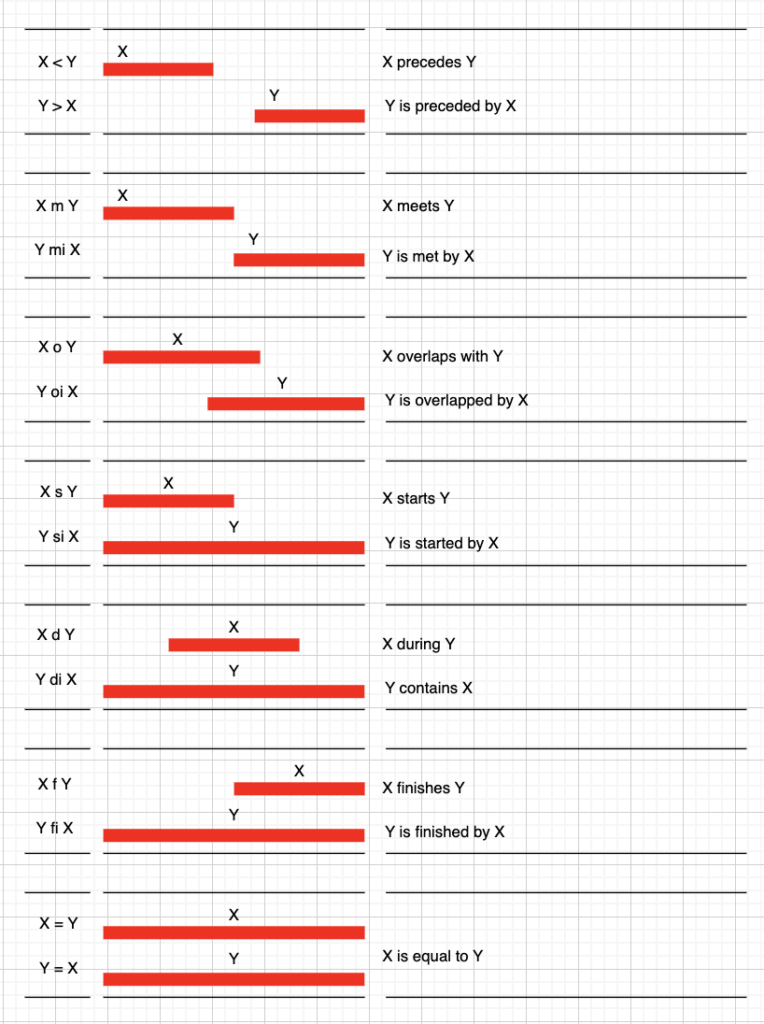
“Allen proposed thirteen basic relations between time intervals that are distinct, exhaustive, and qualitative. Distinct because no pair of definite intervals can be related by more than one of the relationships. Exhaustive because any pair of definite intervals are described by one of the relations. Qualitative because no numeric time spans are considered.”
The notion of time being a quality of a relationship rather than a measurable entity is already liberating.
“Using Alan’s calculus, given facts can be formalized and then used for automatic reasoning. Relations between intervals are formalized as sets of base relations.”
The sentence
“and when she had finished her song she bowed her head toward me”
is formalized in Allen’s Interval Algebra as follows:
[and when she had finished her song] {m} [she bowed her head toward me]

But then this gets very complicated very quickly. It is uncertain if “I believe to be a Virgin Maid” is anterior, posterior, or concurrent with “what I think of her song”.
These uncertainties are farther calculated as a union of all “maybes”. The “maybes” are a subset of all possible combinations between the 13 relationships, or 2 power of 13, or 8192. And at this point this leaves the realm of intuitive and is going into the realm of computing machines. With the help of temporal annotation systems like TimeML and consequent calculation algorithms, machines can “restore” the “actual” time sequences of texts and films.
I am imagining a “restored” Battleship Potemkin and understand that Allen’s Interval Algebra and my paths got to part from here.
Reichenbach’s theory of tense adds the idea of the viewer or a frame of reference to expressing the semantics of temporality.
Reichenbach distinguishes three conceptually different points in time – the event itself (E), a point of reference (R) and a point of speech (S).
which results in the following semantic framework
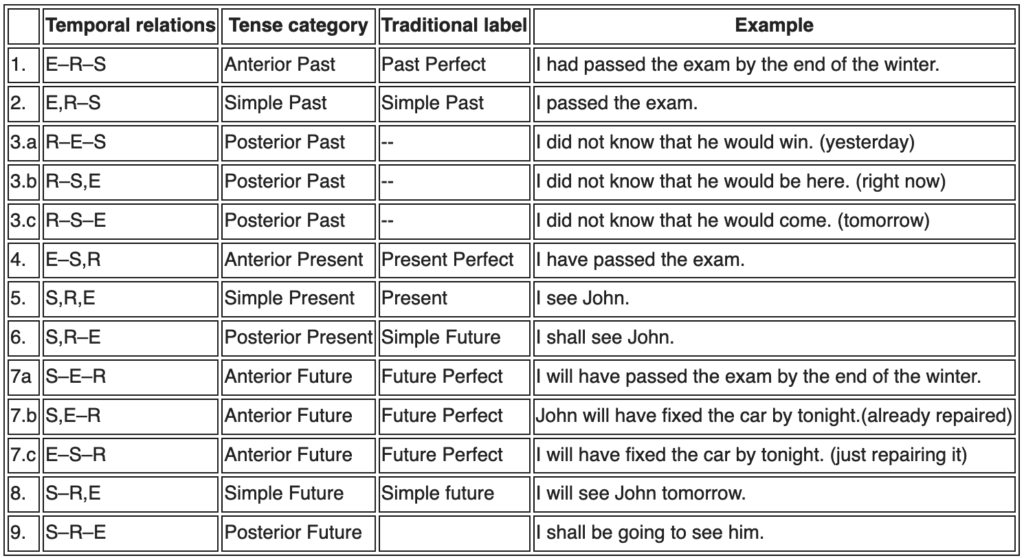
where a compound sentence like “John told me the news, but I had already sent the letter” becomes

with “John told me the news” clause containing E1, S1 and R1 and ” but I had already sent the letter” clause containing E2, S2 and R2.
with that
She asked me straight out “Have I discussed your concerns well?”
becomes
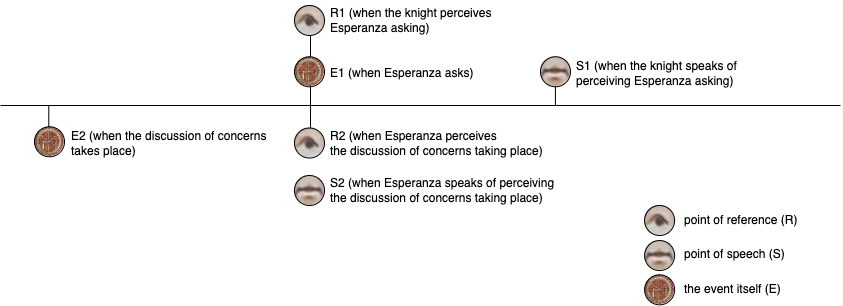
This framework allows us to capture the shifts in the frame of reference, and to break free from the linear geometry of Allen’s framework into a two-dimensional one, to which Chilton adds a third deontic dimension.

Given 0 being me, here and now
t-axis being time
s-axis being space
close <-> far is based on peripersonal space
m-axis being likelihood, or deontic dimension
She asked me straight out “Have I discussed your concerns well?”
becomes

From there, it is an easy step to add an extra dimension, which is the shifting itself that is happening within our minds.
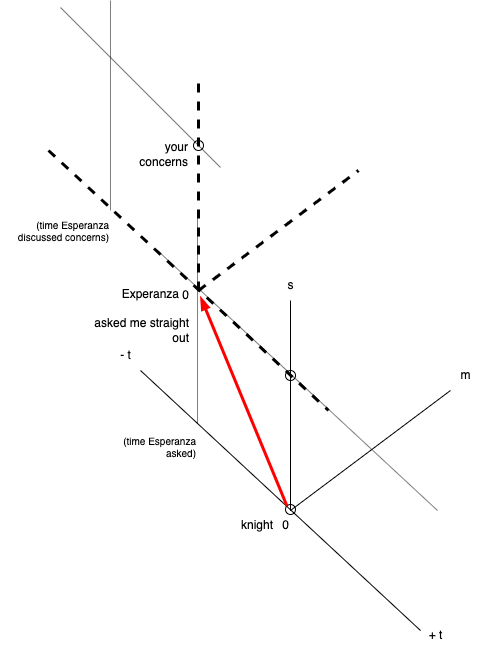
This is my moment of epiphany. With this thought I feel that I have arrived. It is this phenomena of shifting that constitutes our human temporality, and it is exactly the path of that shifting that constitutes our human time.
Eisenstein meets Einstein on page 185 of “Selected Works. Volume 1”
Unrepresentable, not sketched into any score, made possible only by passing through the illumination of the mind-projector, the time is a search for the meaning that emerges in-between frames.
“Time and space are modes by which we think and not conditions in which we live“
Time is what happens in our minds when we shift the viewpoints. Time is our work of making sense.
In LA, Hammer Center, taking a break from the writing, I walk upstairs. I spend time in-front of a favorite painting, mixing my sense-making with that of the artist’s, shifting my viewpoints from the scene-as-he-saw-it to the canvas-as-he-paints-it to the canvas-as-I-see-it to me-as-I-think-of-me-seeing. I emerge from that work exhausted and filled with the sense of accomplishment.
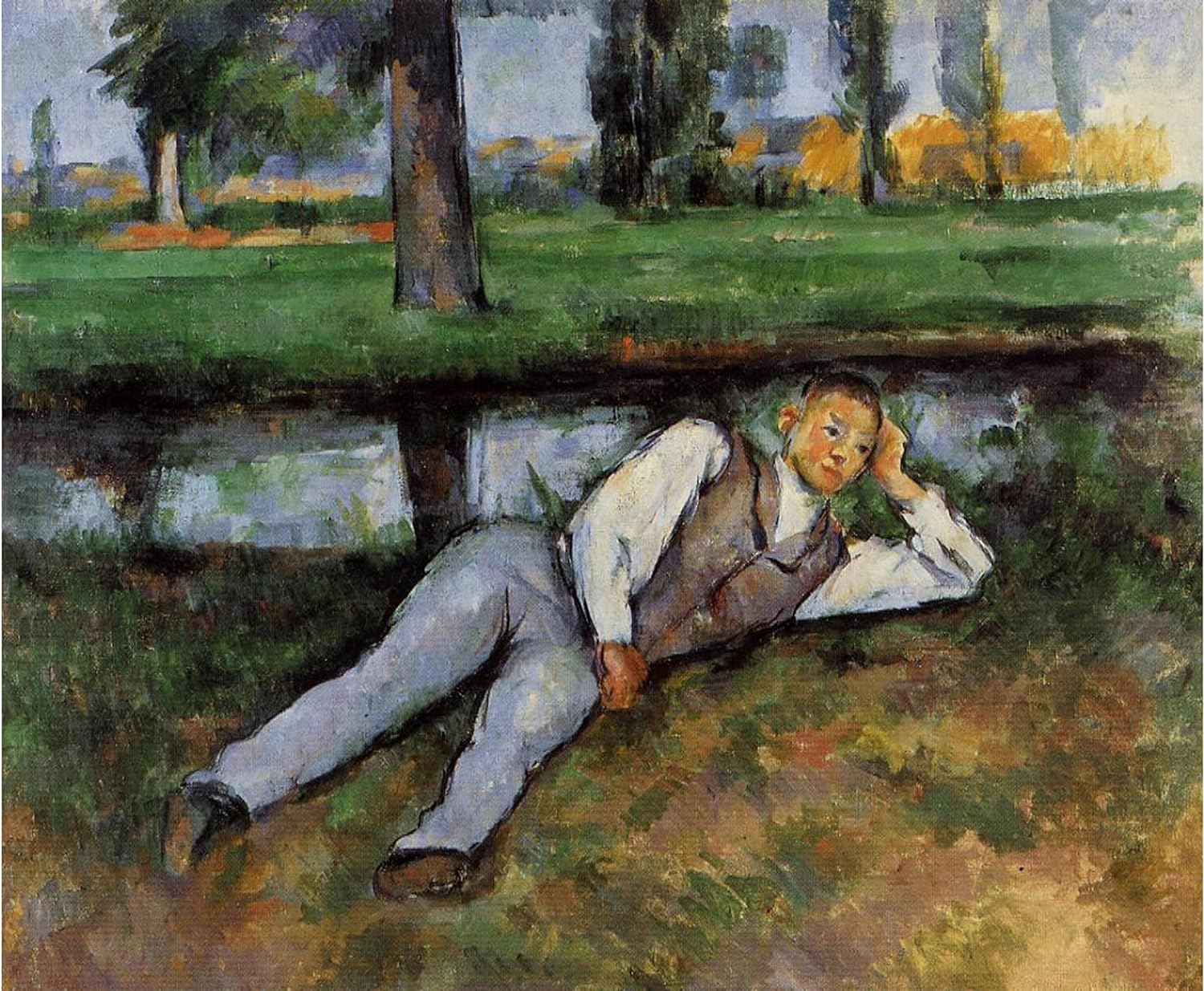
Back to the downstairs writing.
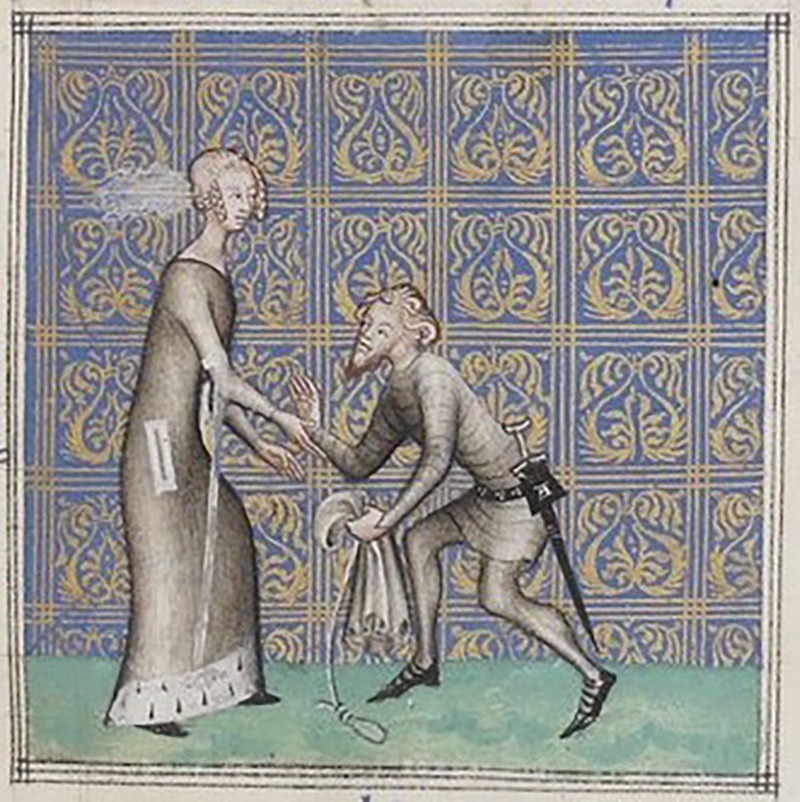
“I, who was still dozing — not deeply, for I could perfectly hear what she had composed and sung with its rhyme, music, and text — felt the coldness of the ring; and then, somewhat slow-wittedly, I turned toward her the best I could, and left the state of rest…”
Like breathing in and out, my mind is oscillating between Ovid warming up food on the banks of Dunai, Baethius writing his magnificent book while awaiting the execution in prison, Guillaume de Machaut changing the course of the musical experience for future generations, Concordian Dawn breezing the life back into that musical experience, me arriving to the end of this post, between our concert-going together, Papa, and our concert-goings in other places and other times, our time together, our time together, our time together, forever and ever, all is here and now as long as my mind breathes…
Dear Daddy, happy birthday.

Cited work:
Medieval Song from Aristotle to Opera
Guillaume de Machaut, The Boethian Poems: General Introduction
Guillaume de Machaut, Remède de Fortune
Allen’s Interval Algebra
Temporal order recovery
Sergei Eisenstein
Reichenbach’s theory of tense
Reichenbach, Allen, and TimeML
Paul Chilton
Paul Cezanne

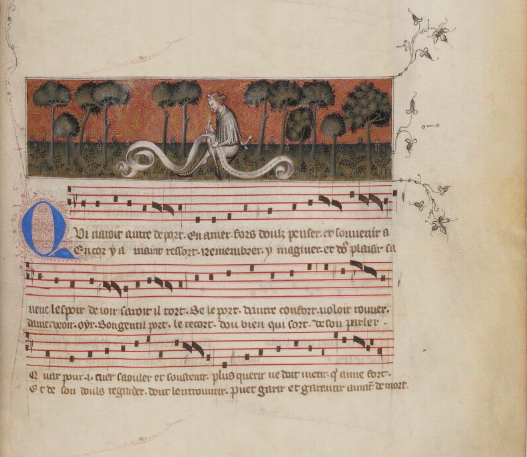


One response
U r my favorite borges